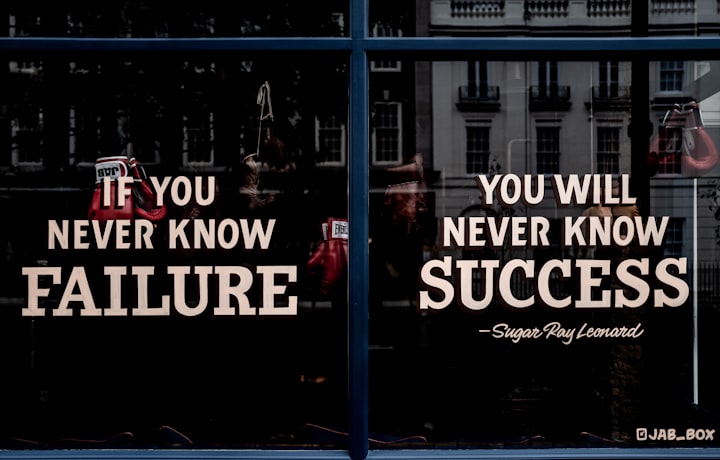I Knew This Book Was Fantastic After Reading One Page
No spoilers. Just a few reasons why

“What’s that you are reading?” Big Andy’s face screwed up at the title of the book I took from my bag.
“Does it not appeal to you?”
“Nut,” he said. “What’s interesting about chemistry?”
The last book Big Andy had in his hands was the one his parents gave him with a handful of crayons. His nose squinted in aversion to this one with actual words.
I smiled at his reaction. “Let me show you the first page.”
The first three clauses of the first paragraph all begin with the same word, “Back in 1961,…”, “Back before…”, “Back when…”.
This is a powerful writing technique called anaphora. The repetition of a word or phrase at the beginning makes the information lyrical, artistic, and memorable.
In addition, each clause is relatively equal in length and structure. They match in sound, rhythm, and beat. This is also a rhetorical device we call isocolon — specifically, a tricolon because there are three.
It’s a rather clever opening. It’s super engaging. And the author executes it to perfection.
The first paragraph ends with —
“…the thirty-year-old mother of Madeline Zott rose before dawn every morning and felt certain of just one thing: her life was over.”
— Bonnie Garmus, Lessons in Chemistry
It is an assured and engaging opening. It plucks at our curiosity. Why was her life over?
Next, Elizabeth Zott, Madeline’s mother, makes her daughter’s lunch box. She includes slips of paper on which she writes —
- Fuel for learning.
- Play sports at recess but do not automatically let the boys win.
- Most people are awful.
This brought back memories of my school lunch box. My mum would put in the occasional note.
Sorry for taking a bite out of your sandwich, but it looked so delicious I couldn’t resist it.
It’s a tradition I have continued with my kids — they thought all sandwiches came with a bite out of them until they got to the big school.
Elizabeth Zott loves her daughter, her lunch box notes tell us that. She wants Madeline to be healthy, she wants her to learn and she wants her to be safe. I’m already rooting for Elizabeth Zott.
If you have never put a note in a lunch box, Bonnie Garmus has now implanted that idea in your head. I’m prepared to bet with anyone that at some stage you will write just such a note to a person you love.
Before the first page is done, we learn that Madeline had been reading since age three and, now, at age five, was already through most of Dickens. She’s smart. She can hum a Bach concerto but can’t tie her shoelaces.
I’m hooked.
Lessons in Chemistry is a debut novel. But Bonnie Garmus is not a debut writer. She has been a copywriter and creative director. She knows how to write with eloquence, she understands rhetorical devices.
Bonnie Garmus is an accomplished creative writer in the know. By page nine I am reading one of the best examples of congeries I have ever read —
“…rowers only ever want to talk about rowing. Get two or more rowers in a room and the conversation goes from normal topics like work or weather to long, pointless stories about boats, blisters, oars, grips, ergs, feathers, workouts, catches, releases, recoveries, splits, seats, strokes, slides, starts, settles, sprints, and whether the water was really “flat” or not.”
It seems like overkill. We don’t speak like that. But Bonnie Garmus knows exactly what she is doing.
Congeries is from the Latin for heap. It means the same as the word ‘list’. But it is much more charming than that. Congeries is a very specific type of persuasive writing device used to create a feel or effect.
Her pile of rowing terms is more than a mere list. We gather from it the importance rowing has in the life of Elizabeth Zott from her intimate knowledge of rowers and her exhaustive knowledge of rowing terms.
Lessons in Chemistry is filled with rhetorical writing devices. These give the book flair and a quality of style that makes it irresistible to the reader. Take her blazons, for example, they are exquisite —
“Part of the problem was Calvin’s posture. He was six feet four inches tall, lanky and long, but he slouched to the right — probably a by-product of always rowing stroke side. But the bigger issue was his face. He had a lonesome look about him, like a child who’d had to raise himself, with large gray eyes and messy blondish hair and purplish lips, the latter of which were nearly always swollen because he tended to chew on them. His was the kind of face that some might call forgettable, a below-average composition that gave no hint of the longing or intelligence that lay behind, save for one critical feature — his teeth — which were straight and white, and which redeemed his entire facial landscape whenever he smiled.”
Blazon is a French heraldic term meaning “coat of arms.” In literature, however, a blazon is a catalogue of a beloved’s physical features or attributes.
Lessons in Chemistry has sold over 4 million copies since being published last year. It is the winner of the Goodreads Choice Best Debut Novel Award
and Bonnie Garmus is the British Book Awards Author of the Year.
It has also racked up an amazing 230,000 reviews on Amazon, an incredible amount by any standard. But I didn’t need to know any of that, I only needed to read the first page.
There’s one more thing
More than the anaphora, isocolon, congeries, blazon or any number of other rhetorical devices she uses.
It’s the most important thing. Without it, an author has nothing.
That first page of Lessons in Chemistry told me that Bonnie Garmus had a story to tell.
Malky McEwan
About the Creator
Malky McEwan
Curious mind. Author of three funny memoirs. Top writer on Quora and Medium x 9. Writing to entertain, and inform. Goal: become the oldest person in the world (breaking my record every day).






Comments (1)
I couldn't stop reading. Your writing was really well done!